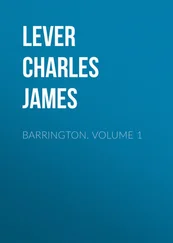Charles Lever - Roland Cashel, Volume I (of II)
Здесь есть возможность читать онлайн «Charles Lever - Roland Cashel, Volume I (of II)» — ознакомительный отрывок электронной книги совершенно бесплатно, а после прочтения отрывка купить полную версию. В некоторых случаях можно слушать аудио, скачать через торрент в формате fb2 и присутствует краткое содержание. Жанр: literature_19, foreign_antique, foreign_prose, на английском языке. Описание произведения, (предисловие) а так же отзывы посетителей доступны на портале библиотеки ЛибКат.
- Название:Roland Cashel, Volume I (of II)
- Автор:
- Жанр:
- Год:неизвестен
- ISBN:нет данных
- Рейтинг книги:4 / 5. Голосов: 1
-
Избранное:Добавить в избранное
- Отзывы:
-
Ваша оценка:
- 80
- 1
- 2
- 3
- 4
- 5
Roland Cashel, Volume I (of II): краткое содержание, описание и аннотация
Предлагаем к чтению аннотацию, описание, краткое содержание или предисловие (зависит от того, что написал сам автор книги «Roland Cashel, Volume I (of II)»). Если вы не нашли необходимую информацию о книге — напишите в комментариях, мы постараемся отыскать её.
Roland Cashel, Volume I (of II) — читать онлайн ознакомительный отрывок
Ниже представлен текст книги, разбитый по страницам. Система сохранения места последней прочитанной страницы, позволяет с удобством читать онлайн бесплатно книгу «Roland Cashel, Volume I (of II)», без необходимости каждый раз заново искать на чём Вы остановились. Поставьте закладку, и сможете в любой момент перейти на страницу, на которой закончили чтение.
Интервал:
Закладка:
“Is it so very bad?” asked Cashel, smiling.
“It was ill-planned originally, added to in, if possible, worse taste, and then suffered to fall into ruin. It is now something more than eighty years since it saw any other inhabitant than a caretaker.”
“Well, the picture is certainly not seductive. I rather opine that the best thing we can do is to throw this old rumbling concern down, at all events; and now once more, – what shall we do with Mr. Corrigan?”
“I should advise you not giving any reply before you visit the property yourself. All business matters will be completed here, I trust, by Saturday. What, then, if we go over on Monday to Tubbermore?”
“Agreed. I have a kind of anxiety to look at the place, – indeed, a mere glance would decide me if I ever care to return to it again.”
“Then, I perceive, our counsel is of no avail here,” said Mrs. Kennyfeck, rising, with a very ill-concealed chagrin.
“Nay, madam, don’t say so. You never got so far as to give it,” cried Cashel.
“Oh, yes, you forget that I said it would be absurd to hesitate about resuming possession.”
“Unquestionably,” echoed Miss Kennyfeck. “It is merely to indulge an old man’s caprice at the cost of your own comfort and convenience.”
“But he may cling to the spot, sister dear,” said Olivia, in an accent only loud enough to be audible by Cashel.
“You are right,” said Roland, in her ear, with a look that spoke his approval far more eloquently.
Although Miss Kennyfeck had heard nothing that passed, her quickness detected the looks of intelligence that were so speedily interchanged, and as she left the room she took occasion to whisper, “Do take advice, dear; there is no keeping up a pace like that.”
CHAPTER IX. AN EXCITING ADVENTURE
“Bravo, Toro.”
As it chanced that many of Mr. Kennyfeck’s clients were Western gentlemen, whose tastes have an unequivocal tendency to all matters relating to horse-flesh, his stable was not less choicely furnished than his cellar; for, besides being always able to command the shrewdest judgments when he decided to make a purchase, many an outstanding balance of long duration, many a debt significantly pencilled “doubtful” or “bad,” in his note-book, was cleared off by some tall, sinewy steeplechaser from Galway, or some redoubted performer with the “Blazers.”
So well known was this fact that several needed no other standard of a neighbor’s circumstances, than whether he had contributed or not to the Kennyfeck stud. This brief explanation we have been induced to make, to account for the sporting character of a stable whose proprietor never was once seen in the saddle. Far otherwise the ladies of the house; the mother and daughters, but in particular the elder, rode with all the native grace of Galway; and as they were invariably well mounted, and their grooms the smartest and best appointed, their “turn-out” was the admiration of the capital.
It was in vain that the English officials at the Castle, whose superlative tastes were wont to overshadow mere Irish pretension, endeavored to compete with these noted equestrians. Secretaries’ wives and chamberlains’ daughters, however they might domineer in other matters, were here, at least, surpassed, and it was a conceded fact, that the Kennyfecks rode better, dressed better, and looked better on horseback than any other girls in the country. If all the critics as to horsemanship pronounced the elder unequivocally the superior rider, mere admirers of gracefulness preferred the younger sister, who, less courageous and self-possessed, invested her skill with a certain character of timidity that increased the interest her appearance excited.
They never rode out without an immense cortège of followers, every well-looking and well-mounted man about town deeming it his devoir to join this party, just as the box of the reigning belle at the opera is besieged by assiduous visitors The very being seen in this train was a kind of brevet promotion in fashionable esteem, to which each newly-arrived cornet aspired, and thus the party usually presented a group of brilliant uniforms and dancing plumes that rivalled in brilliancy, and far excelled in amusement, the staff of the viceroy himself.
It would be uufair to suppose that, with all their natural innocence and artlessness, they were entirely ignorant of the sway they thus exercised; indeed, such a degree of modesty would have trenched upon the incredulous, for how could they doubt what commanders of the forces and deputy-assistant-adjutants assured them, still less question the veracity of a prince royal, who positively asserted that they “rode better than Quentin’s daughter”?
It was thus a source of no small excitement among the mounted loungers of the capital, when the Kennyfecks issued forth on horseback, and not, as usual, making the tour of the “Square” to collect their forces, they rode at once down Grafton Street, accompanied by a single cavalier.
“Who have the Kennyfeck girls got with them?” said a thin-waisted-looking aide-de-camp to a lanky, well-whiskered fellow in a dragoon undress, at the Castle gate.
“He is new to me – never saw him before. I say, Lucas, who is that tall fellow on Kennyfeck’s brown horse – do you know him?”
“Don’t know – can’t say,” drawled out a very diminutive hussar cornet.
“He has a look of Merrington,” said another, joining the party.
“Not a bit of it; he’s much larger. I should n’t wonder if he’s one of the Esterhazys they’ve caught. There is one of them over here – a Paul or a Nicholas, of the younger branch; – but here ‘s Linton, he ‘ll tell us, if any man can.”
This speech was addressed to a very dapper, well-dressed man of about thirty, mounted on a small thoroughbred pony, whose splashed and heaving flanks bespoke a hasty ride.
“I say, Tom, you met the Kennyfecks, – who was that with them?”
“Don’t you know him, my Lord?” said a sharp, ringing voice; “that’s our newly-arrived millionnaire, – Roland Cashel, our Tipperary Croesus, – the man with I won’t say how many hundred thousands a year, and millions in bank besides.”
“The devil it is – a good-looking fellow, too.”
“Spooney, I should say,” drawled out the hussar, caressing his moustache.
“One need n’t be as smart a fellow as you, Wheeler, with forty thousand a year,” said Linton, with a sly glance at the others.
“You don’t suppose, Tom,” said the former speaker, “that the Kennyfecks have any designs in that quarter, – egad! that would be rather aspiring, eh?”
“Very unwise in us to permit it, my Lord,” said Linton, in a low tone. “That’s a dish will bear carving, and let every one have his share.”
My Lord laughed with a low cunning laugh at the suggestion, and nodded an easy assent.
Meanwhile the Kennyfecks rode slowly on, and crossing Essex Bridge continued their way at a foot pace towards the park, passing in front of the Four Courts, where a very large knot of idlers uncovered their heads in polite salutation as they went.
“That’s Kennyfeck’s newly-discovered client,” cried one; “a great card, if they can only secure him for one of the girls.”
“I say, did you remark how the eldest had him engaged? She never noticed any of us.”
“I back Olivia,” said another; “she’s a quiet one, but devilish sly for all that.”
“Depend upon it,” interposed an older speaker, “the fellow is up to all that sort of thing.”
“Jones met him at dinner yesterday at Kennyfeck’s, and says he is a regular soft one, and if the girls don’t run an opposition to each other, one is sure to win.”
Читать дальшеИнтервал:
Закладка:
Похожие книги на «Roland Cashel, Volume I (of II)»
Представляем Вашему вниманию похожие книги на «Roland Cashel, Volume I (of II)» списком для выбора. Мы отобрали схожую по названию и смыслу литературу в надежде предоставить читателям больше вариантов отыскать новые, интересные, ещё непрочитанные произведения.
Обсуждение, отзывы о книге «Roland Cashel, Volume I (of II)» и просто собственные мнения читателей. Оставьте ваши комментарии, напишите, что Вы думаете о произведении, его смысле или главных героях. Укажите что конкретно понравилось, а что нет, и почему Вы так считаете.












